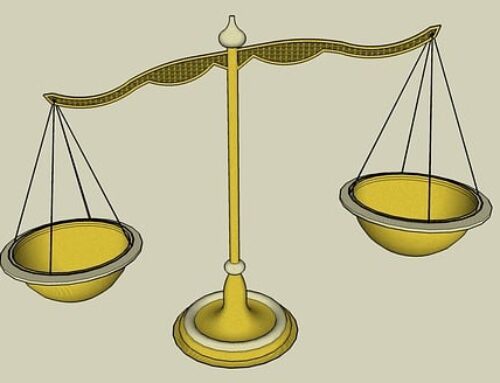By Myriam Hunter-Henin, University College London
In one of the 2019 Reith Lectures, entitled Law and the Decline of Politics, Lord Sumption questioned the role of courts in adjudicating controversies over human rights:
“In a secular democracy, what is it that makes rights legitimate if not the decision of representative bodies? What is the source, independent of popular endorsement, which enables us to identify some rights as so fundamental that they must not be removed or limited by political decision?”
The reasoning can be broken down into a syllogism:
- Democracy means representative parliamentary democracy
- Political decisions in secular liberal states must rely on democracy
- Therefore political decisions belong to Parliament
As a result, judicial powers ought logically to be strictly confined. In particular, there should be no judicial intervention against legislative pronouncements. As such, a sharp separation between law and politics, apt to muzzle any impulses for strong judicial review of legislative acts, would therefore be appropriate. Such conception of democracy confined to representative parliamentary majority decisions is of course open to challenge but this is not what I intend to do in this blog. Instead, I would like to refute the assumed practical virtues of judicial restraint, namely:
- that judicial restraint would ensure that courts remain neutral in cases where no obvious right answer is available;
- that it would guarantee judicial deference towards Parliament and in the case of supranational courts, judicial deference towards national parliaments.
Through the Achbita ruling from the Court of Justice of the European Union on 14th March 2017, I will show that these assumptions are empirically wrong. In that case, the claimant was an employee working in Belgium as a receptionist for a security company, G4S. Asked by her employer to remove her hijab, which infringed the company’s neutrality policy, Ms Achbita refused and was eventually dismissed. The CJEU considered the compatibility of the dismissal with EU Directive 2000 establishing a general framework for equal treatment in employment and occupation and in particular, its provisions protecting against discrimination on the ground of religion in the workplace.
In this assessment, the CJEU carried out a minimalist judicial review and adopted a position of retreat in two ways: it conferred prima facie legitimacy to the employer’s company neutrality policy and it granted a wide margin of appreciation to national authorities, in acknowledgment of the underlying laïque Belgium national context. The CJEU’s scrutiny of the employer’s policy was minimal. The CJEU did not enquire why Ms Achbita’s hijab might have undermined G4S’s corporate image as a security expert or why an image of neutrality was desirable in the first place. Nor did the Court urge national authorities to subject the resulting restrictions to a thorough proportionality test, merely drawing attention instead to the consistency in the enforcement of the policy. Far from being neutral, this approach, I submit, places commercial interests as the ‘natural’ baseline and unduly introduces a hierarchy in favour of business rights over religious freedom in the workplace.
In line with the second virtue associated with judicial retreat – the deference towards national parliaments, the Court’s non-interventionist stance in Achbita was also justified by an alleged deference towards the national context of laïcité, the French and Belgium version of secularism. However, it is important to note that had the Court in Achbitaleaned in favour of the employee’s request to wear a religious symbol, it would not have clashed with laïcité. In a purely private law context, laïcité and its resulting neutrality requirements do not apply. By seemingly adopting a deferential approach, the CJEU therefore in fact gave support to the most virulent interpretations of secularism, which prone the extension of the principle of laïcité beyond its current legislative limits.
One may retort that Achbita reflects a poor implementation of judicial restraint (where deference was not owed) but does not undermine the value of judicial restraint itself, where and when deference to national principles is rightly due. However, by definition, when faced with difficult cases, courts will have no parliamentary clear position to which they can defer. In this context of uncertainty, judicial restraint is no more neutral and deferential than judicial intervention. My point is not that this lack of neutrality is problematic. What is problematic is the illusion that minimum judicial review is automatically neutral and democratic. This illusion precludes any awareness of the real impact of judicial restraint – above all, the advantage it is likely to confer to one set of interests over others, without any deliberation or consideration of competing interests or indeed – paradoxically – any legislative pronouncement to support it.
In my book (Why Religious Freedom Matters for Democracy. Comparative Reflections from Britain and France for a Democratic “Vivre Ensemble” (Hart Publishing, Hart Studies in Comparative Public Law, 2020), I put forward what I see as a better way to resolving tensions between religious freedom and conflicting interests in the workplace. Underlying my approach is a conception of democracy as a discursive exercise, an inclusive and open-ended reason-giving process. In the limited confines of this blog, the point is not however to promote such deliberative conception of democracy against notions of representative majoritarian parliamentary democracy. More modestly, I argue against the notion, implicit in the Court’s restraint stance in Achbita, that certain spheres should be a priori carved out of (full) judicial review. If judicial restraint might well still prove opportune under my approach, it will be in other words on the basis of a contextual analysis, not in light of a judicial pre-determined hierarchy of interests.
As Lord Sumption, in the abovementioned lecture, has rightly warned,
“disagreements cannot be above legitimate political debate except in a totalitarian state”.
In giving the upper hand to one party without questioning the legitimacy of that party’s interests, systematic judicial restraint in difficult cases would do exactly that.
This paper was due to be presented as part of the ‘Law, Politics and Judicial Behaviour’ stream at the 2020 SLSA Annual Conference in Portsmouth.






Leave A Comment